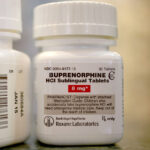Farmapram 2mg Effects and Side Effects

Farmapram is a brand of alprazolam (Xanax) in Mexico. Alprazolam is a prescription drug that is used to manage anxiety disorders or panic disorder. It can be used for the short-term relief of symptoms of anxiety or anxiety linked with depression. Anxiety or tension caused by the stress of everyday life usually doesn’t need to be treated with this drug.
Farmapram is not an FDA approved medication but it is popular among Americans. US residents travel to Mexico to purchase medications for many reasons and for many different medical conditions, including chronic conditions. Prescription medication can often be purchased in Mexico without a physician’s prescription. The most frequently cited reason for purchasing medications in Mexico according to studies is lower prices, even among people with some form of health insurance. Farmapram is classified as a Schedule 4 controlled substance under the Controlled Substance Act (CSA).
This drug may be used as part of a combination therapy. This means you may need to take it with other medications. This drug belongs to a class of drugs called benzodiazepines. A class of drugs is a group of medications that work in a similar way. These drugs are often used to treat similar conditions. This drug attaches to certain benzodiazepine receptors in your brain and nervous system. This boosts the activity of a chemical called gamma-aminobutyric acid. This helps produce a calming effect in your brain.
What are the side effects of Farmapram?
Get emergency medical help if you have signs of an allergic reaction to Farmapram: hives; difficult breathing; swelling of your face, lips, tongue or throat.
Farmapram can slow or stop your breathing, especially if you have recently used an opioid medication, alcohol, or other drugs that can slow your breathing. A person caring for you should seek emergency medical attention if you have weak or shallow breathing, if you are hard to wake up, or if you stop breathing.
Call your doctor at once if you have:
- weak or shallow breathing;
- a light-headed feeling, like you might pass out;
- a seizure;
- hallucinations, risk-taking behavior;
- increased energy, decreased need for sleep;
- racing thoughts, being agitated or talkative;
- double vision; or
- jaundice (yellowing of the skin or eyes).
The sedative effects of Farmapram may last longer in older adults. Accidental falls are common in elderly patients who take benzodiazepines. Use caution to avoid falling or accidental injury.
Common Farmapram side effects may include:
- drowsiness; or
- feeling light-headed.
This is not a complete list of side effects and others may occur. Call your doctor for medical advice about side effects. Although this is not an FDA approved medication you may still report side effects to FDA at 1-800-FDA-1088.
What other drugs will affect Farmapram?
Sometimes it is not safe to use certain medications at the same time. Some drugs can affect your blood levels of other drugs you take, which may increase side effects or make the medications less effective.
Taking Farmapram with other drugs that make you sleepy or slow your breathing can cause dangerous side effects or death. Ask your doctor before using opioid medication, a sleeping pill, a muscle relaxer, prescription cough medicine, or medicine for depression or seizures.
Many drugs can interact with Farmapram. This includes prescription and over-the-counter medicines, vitamins, and herbal products. Not all possible interactions are listed here. Tell your doctor about all your current medicines and any medicine you start or stop using.
Farmapram pill Safety Information
- Farmapram pill can slow or stop your breathing, especially if you have recently used an opioid medication, alcohol, or other drugs that can slow your breathing.
- You should not use Farmapram pill if you have narrow-angle glaucoma, if you also take itraconazole or ketoconazole, or if you are allergic to Farmapram pill or similar medicines (Valium, Ativan, Tranxene, and others).
- Do not use Farmapram pill if you are pregnant. This medicine can cause birth defects or life-threatening withdrawal symptoms in a newborn.
- Farmapram pill may be habit-forming and should be used only by the person for whom it was prescribed. Keep the medication in a secure place where others cannot get to it. Misuse can cause addiction, overdose, or death.
- Fatal side effects can occur if you take FARMAPRAM pill with alcohol, opioid medicine, or other drugs that cause drowsiness or slow your breathing.





